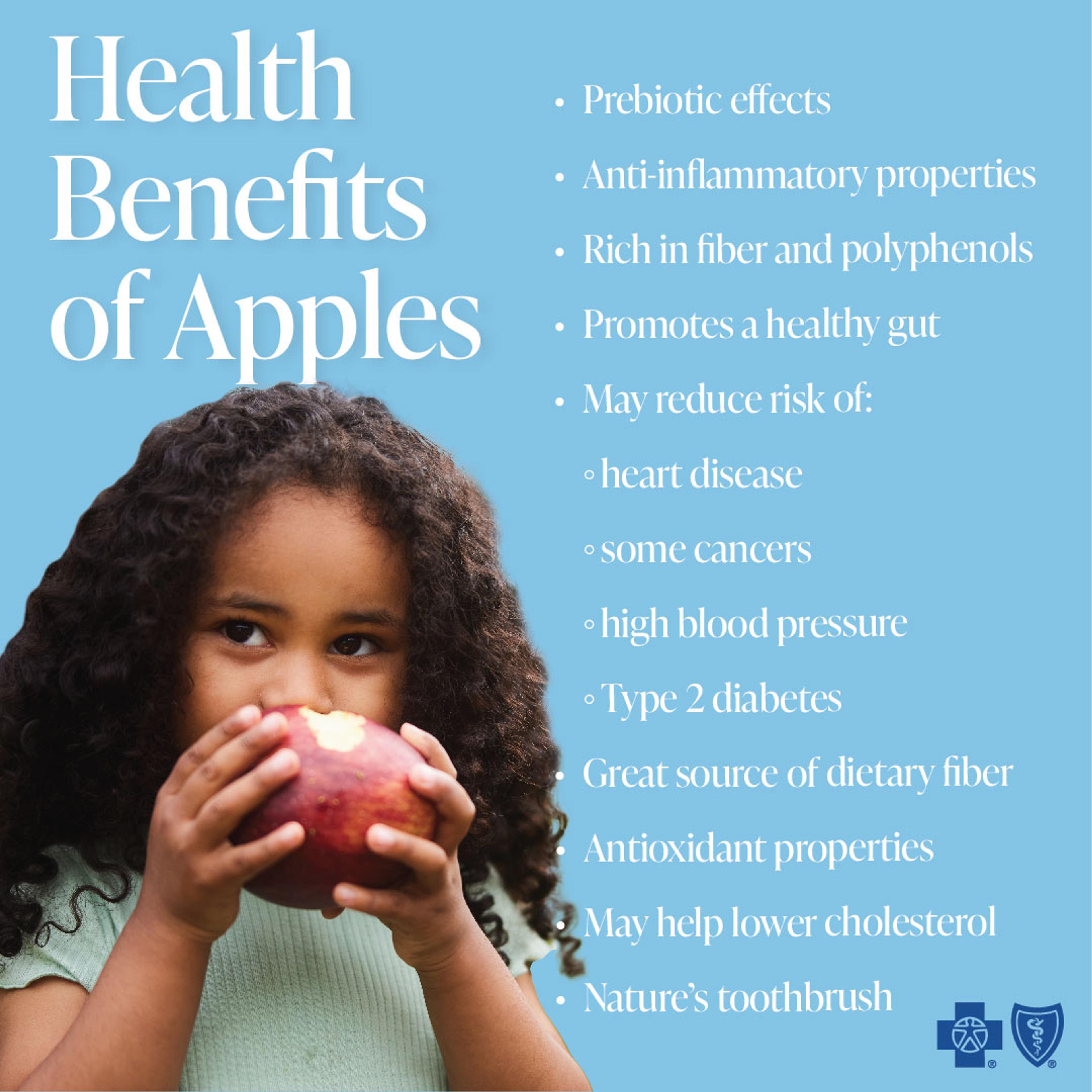What Are the Health Benefits of Apples
Shandra Martinez
| 4 min read

Whether you’re biting into a crisp, crunchy apple or slicing and simmering them slowly into sauce, you’re enjoying one of the most delicious fruits of fall. Apples may not be exotic, but they are a sweet, easy-to-find fruit that can be used in so many ways. They are wonderfully packable into lunchboxes, backpacks and picnic totes. They can be eaten fresh out of hand, cooked into pies, cakes and quick breads, or even sliced and eaten with cheese for a European-style dessert. What’s more, you’re doing your body good when you eat them. Apples are packed with health benefits - even some you might not expect.
By the numbers
When it comes to agriculture, apples are the queen of the orchard crops in Michigan. This fall’s harvest is expected to be a big one, according to the Michigan Apple Committee Board, a statewide group that represents the industry. But the incoming harvest likely won’t surpass last year’s record-breaker: more than 32 million bushels of apples were harvested in 2022. That haul - more than a billion pounds of apples - was used for fresh eating, canned and frozen fruits, and crushed into juice and cider.

Benefits of apples
Beyond being an easy-to-eat sweet fruit, apples have plenty of health benefits. One medium-sized apple has just shy of 100 calories, one gram of protein and three grams of fiber. That fiber part is one of the healthy perks. Pectin is a type of fiber found inside vegetables and fruits, including apples. When you eat an apple - especially with the skin left on - it delivers a dose of fiber that can both lower your “bad” cholesterol levels and help your body better control blood sugar levels, studies have shown.
Other benefits of eating apples include:
- Lower risk of Type 2 diabetes. Back to the piece on blood-sugar control: An eight-year study showed that women who ate one or more apples a day had a nearly 30% lower risk of developing Type 2 diabetes, compared to women who did not eat apples daily.
- A source of phytochemicals. These include flavonoids, which are plant chemicals that are naturally occurring. They offer anti-inflammatory and antioxidant benefits. Much like fiber, you should eat the apple skin to get these benefits, according to Harvard’s School of Public Health.
- Good for your gut health. Apples have a couple of different qualities that benefit your microbiome. The pectin in apples and their peels doubles as a pre-biotic, which means it provides good food for the microorganisms that live in your intestine. The flavonoids in apples can act like a stop sign, batting down the bad microbes that might be living there.
- Helps keep you regular. People with irritable bowel syndrome or IBS-type diarrhea symptoms might find it helpful to eat more apples. Research shows the gel-like pectin fiber in apples can help clear up that problem by absorbing extra water in your system and helping you stay regular.
How to add more apples into your diet
From Honeycrisps to Galas to Paula Reds, it’s easy to sample your way through the season’s sweetest apples to find the varieties that you like best. Need more ideas for adding an apple a day? Here are some of our favorites:
- Slice an apple and serve it on a plate with nuts, small pieces of cheese and your favorite raw veggies for a quick and easy snack or light lunch.
- Cut apples into chunks and dip them into your favorite creamy nut butter for a protein-packed snack.
- Simmer a few peeled and cored apples with a little water, cinnamon and sugar for homemade applesauce. Eat the sauce warm, or let it cool and spoon it onto thick slices of toast for an “apple pie.”
- Have dried apple slices? Add them to a fall harvest salad with greens, crumbled feta and pecans and top with a vinaigrette dressing. Or add them into a wrap sandwich with roasted turkey, greens and dried cherries.
Photo credit: Getty Images





